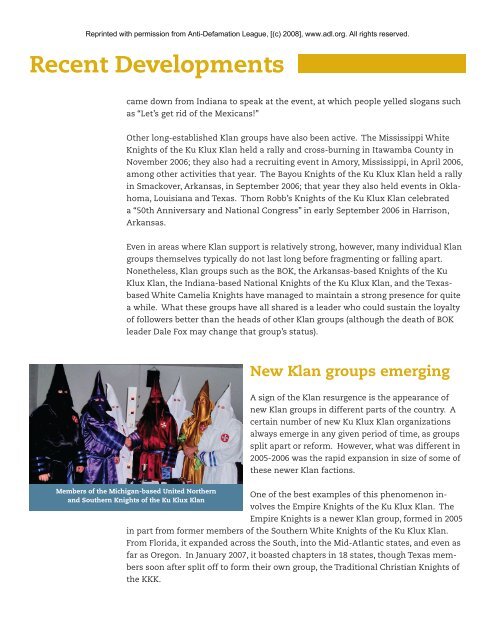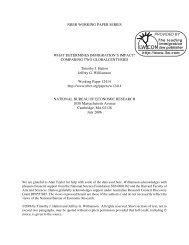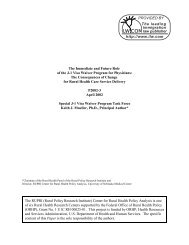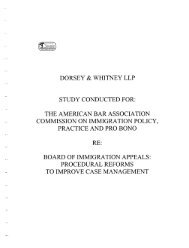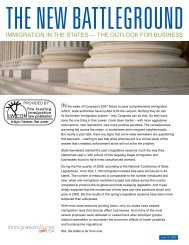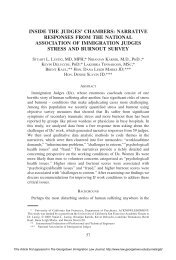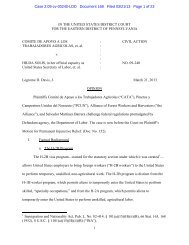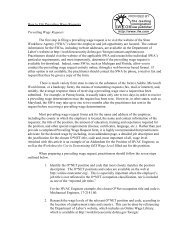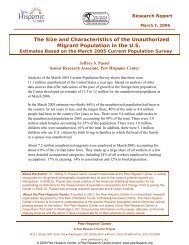Create successful ePaper yourself
Turn your PDF publications into a flip-book with our unique Google optimized e-Paper software.
Reprinted with permission from Anti-Defamation League, [(c) 2008], www.adl.org. All rights reserved.<br />
Recent Developments<br />
came down from Indiana to speak at the event, at which people yelled slogans such<br />
as “Let’s get rid of the Mexicans!”<br />
Other long-established <strong>Klan</strong> groups have also been active. The Mississippi White<br />
Knights of the <strong>Ku</strong> <strong>Klux</strong> <strong>Klan</strong> held a rally and cross-burning in Itawamba County in<br />
November 2006; they also had a recruiting event in Amory, Mississippi, in April 2006,<br />
among other activities that year. The Bayou Knights of the <strong>Ku</strong> <strong>Klux</strong> <strong>Klan</strong> held a rally<br />
in Smackover, Arkansas, in September 2006; that year they also held events in Oklahoma,<br />
Louisiana and Texas. Thom Robb’s Knights of the <strong>Ku</strong> <strong>Klux</strong> <strong>Klan</strong> celebrated<br />
a “50th Anniversary and National Congress” in early September 2006 in Harrison,<br />
Arkansas.<br />
Even in areas where <strong>Klan</strong> support is relatively strong, however, many individual <strong>Klan</strong><br />
groups themselves typically do not last long before fragmenting or falling apart.<br />
Nonetheless, <strong>Klan</strong> groups such as the BOK, the Arkansas-based Knights of the <strong>Ku</strong><br />
<strong>Klux</strong> <strong>Klan</strong>, the Indiana-based National Knights of the <strong>Ku</strong> <strong>Klux</strong> <strong>Klan</strong>, and the Texasbased<br />
White Camelia Knights have managed to maintain a strong presence for quite<br />
a while. What these groups have all shared is a leader who could sustain the loyalty<br />
of followers better than the heads of other <strong>Klan</strong> groups (although the death of BOK<br />
leader Dale Fox may change that group’s status).<br />
New <strong>Klan</strong> groups emerging<br />
A sign of the <strong>Klan</strong> resurgence is the appearance of<br />
new <strong>Klan</strong> groups in different parts of the country. A<br />
certain number of new <strong>Ku</strong> <strong>Klux</strong> <strong>Klan</strong> organizations<br />
always emerge in any given period of time, as groups<br />
split apart or reform. However, what was different in<br />
2005-2006 was the rapid expansion in size of some of<br />
these newer <strong>Klan</strong> factions.<br />
Members of the Michigan-based United Northern<br />
and Southern Knights of the <strong>Ku</strong> <strong>Klux</strong> <strong>Klan</strong><br />
One of the best examples of this phenomenon involves<br />
the Empire Knights of the <strong>Ku</strong> <strong>Klux</strong> <strong>Klan</strong>. The<br />
Empire Knights is a newer <strong>Klan</strong> group, formed in 2005<br />
in part from former members of the Southern White Knights of the <strong>Ku</strong> <strong>Klux</strong> <strong>Klan</strong>.<br />
From Florida, it expanded across the South, into the Mid-Atlantic states, and even as<br />
far as Oregon. In January 2007, it boasted chapters in 18 states, though Texas members<br />
soon after split off to form their own group, the Traditional Christian Knights of<br />
the KKK.


